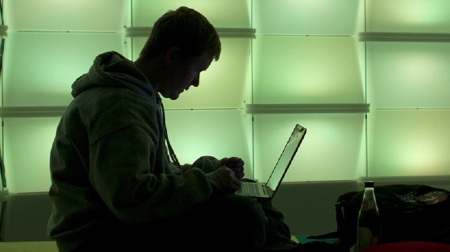UK Christian charity backs lawsuit against gov’t for scrapping internet porn block

A Christian organization is backing a lawsuit against the U.K. government over its failure to implement age restrictions on pornography websites to protect children.
Amid growing concerns and awareness of the public heath harms and other social ills caused by porn, the U.K. government passed the Digital Economy Act 2017 that would have required internet users to verify their age before accessing porn sites.
Christian Action Research & Education, the charity supporting the effort, was one of the signatories of a letter published in The Sunday Times pointing out how children as young as 7 had viewed pornography online.
“Last month a survey for the British Board of Film Classification found that children as young as 7 had viewed hardcore pornography. Half (51 percent) of those aged 11-13 said they had seen porn, rising to 66 percent among 14-15-year-olds. The researchers concluded viewing porn is harming children's understanding of healthy relationships, sex, body image and consent. The research mirrored a Middlesex University report for the NSPCC in 2016. It found viewing porn gave children an entirely unrealistic image of sex," the letter read.
While the age verification system was supposed to go into effect in April 2018, it was never implemented and was ultimately scrapped in October 2019 after Nicky Morgan, secretary of state for digital, culture, media and sport, announced that it would not go forward, according to Premier Christian News.
Thus, four companies — AgeChecked Ltd, VeriMe, AVYourself and AVSecure — are setting in motion a judicial review against the government. Morgan did not have the authority to ditch the policy after Parliament had approved it and was supposed to only determine when the program would be implemented, the four companies maintain. The companies said that scrapping the measure was an "abuse of power." They are now seeking approximately £3 million ($3,914,100) in damages for money lost in developing the age verification technology.
"It is tragic that it has come to this, but if it forces the government's hand so age verification is finally introduced, then so be it," James Mildred, communications manager for the Christian charity CARE, told Premier. "The U.K. had the opportunity to be the world leader by pioneering effective age checks technology, only for the government to give up."
Although the pornography industry is mammoth in size and scope and thus seems impossible to regulate, age verification systems that help to protect minors from exposure to it have been seen as an effect tool to halt its influence.
Mildred noted that should the government support Baroness Howe's bill, which was introduced in the House of Lords on Jan. 21, the situation can be remedied.
"Her bill would place a duty on the government to set an implementation date for age verification to be introduced, which is the same outcome being pursued through this legal challenge," Mildred said.
"Protecting children online is an urgent priority in a day and age when children as young as 7 are accidentally coming across porn online."
Howe has been a longtime campaigner against online smut and has previously stressed the need for the government to close loopholes in legislation aimed at restraining the influence of sexually explicit content.
She wrote in the Daily Telegraph in 2018 that it's an “extraordinary consequence” of the under-aged crackdown that “incredibly lifelike computer-generated” child abuse images should be accessible online to adults.
In the United Sates conservative legislators and intellectuals — including four Republican members of the House of Representatives and Princeton University professor of jurisprudence Robert P. George — are asking Attorney General Bill Barr to address the scourge of porn with the appropriate legal tools available in keeping with then-candidate Donald Trump's 2016 presidential campaign pledge to enforce existing obscenity laws.
Elsewhere in the U.S., 15 state legislatures have passed resolutions declaring pornography as a public health crisis, linking it to domestic violence and human trafficking.





















